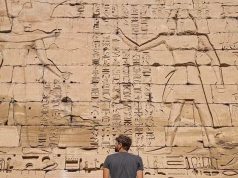The realm of philosophy has been a profound and influential force throughout human history, shaping our understanding of the world and our place in it. In this blog post, we embark on a captivating journey through the history of philosophy. From ancient civilizations to modern thinkers, we’ll explore the evolution of philosophical ideas and their enduring impact on society.
Ancient Philosophical Traditions:
Our philosophical journey begins in ancient times, with the rich traditions of ancient civilizations. From the wisdom of ancient Egypt and Mesopotamia to the profound teachings of Confucius and Laozi in ancient China, these early philosophical systems sought to unravel the mysteries of existence, ethics, and governance.
Ancient Greek Philosophers:
The ancient Greeks laid the foundation for Western philosophy with their groundbreaking ideas. Thinkers like Socrates, Plato, and Aristotle explored topics ranging from ethics and politics to metaphysics and epistemology. Plato’s theory of Forms, Aristotle’s logic and scientific inquiry, and Socrates’ emphasis on self-knowledge and ethical conduct continue to shape philosophical discourse to this day.
Medieval Philosophical Traditions:
During the Middle Ages, philosophical thought in Europe was deeply intertwined with religious beliefs. Scholars like Thomas Aquinas sought to reconcile Christian theology with the philosophy of Aristotle through works like Summa Theologica. This period also witnessed the preservation and translation of ancient Greek and Arabic philosophical texts, ensuring their lasting influence.
Renaissance and Enlightenment Thinkers:
The Renaissance marked a revival of interest in classical philosophy and the birth of humanism. Figures such as René Descartes, Francis Bacon, and John Locke emphasized reason, scientific inquiry, and individualism. The Enlightenment further propelled these ideas, with philosophers like Immanuel Kant and Jean-Jacques Rousseau advocating for freedom, equality, and rationality.
19th and 20th Century Philosophy:
The 19th and 20th centuries brought forth a diverse range of philosophical movements. From the existentialism of Friedrich Nietzsche and Jean-Paul Sartre to the utilitarianism of John Stuart Mill and the pragmatism of William James, these thinkers explored questions of meaning, morality, and the nature of reality. The rise of analytical philosophy, spearheaded by Ludwig Wittgenstein and Bertrand Russell, focused on logical analysis and language.
Contemporary Philosophical Discourse:
In the present day, philosophy continues to evolve and engage with pressing societal issues. Philosophers explore topics such as ethics, social justice, environmentalism, feminism, and the ethics of technology. Contemporary thinkers like Martha Nussbaum, Peter Singer, and Slavoj Žižek contribute to ongoing philosophical discussions, applying critical thought to the challenges of our time.
Conclusion:
The history of philosophy is a tapestry woven with diverse and profound ideas. From ancient civilizations to modern thinkers, philosophical inquiry has shaped our understanding of the world, our values, and our place in society. By exploring the evolution of philosophical thought, we gain insight into the timeless questions that have driven human curiosity and reflection. So, let us embrace the wisdom of the past, engage with the present, and continue to ponder the profound questions that philosophy invites us to explore.
Certainly! In the Middle Ages, philosophy developed in a context characterized by a strong influence of religious and theological beliefs, where philosophy was intertwined with Christian theology, giving rise to philosophical traditions that focused on the harmony between religion and philosophy. Here are some detailed pieces of information about the development of philosophy in the Middle Ages and its impact on religious beliefs:

Christian Platonism:
In the early Middle Ages, philosophy was heavily influenced by the ideas of Plato, particularly regarding the concept of the Platonic realm of eternal forms and the inclination towards spirituality. Platonic ideas were adopted in Christian theology, where they were used to interpret Christian doctrines and the relationship between God and humanity.
Aristotelianism and Natural Theology:
In the later Middle Ages, Aristotelianism became more influential in philosophy and theology. Aristotelian methods of reasoning, analyzing the worldly realism, were adopted and applied to theology. This gave rise to what is known as natural theology, which aimed to explain the existence of God and the universe through rational inference and philosophical study of nature.
Scholasticism:
Scholasticism is a philosophical and theological tradition that emerged in the Middle Ages and was developed by prominent Christian philosophers such as Thomas Aquinas and Augustine. Scholasticism combined Aristotelian philosophy with Christian theology, aiming to clarify and justify religious beliefs using philosophy and logic. The works of Thomas Aquinas, such as “Summa Theologica,” are among the most important works in this tradition.
Mysticism:
Alongside formal philosophy and logical theology, the movement of mysticism emerged in the Middle Ages. Mysticism aimed to experience the spiritual concept of God and attain direct and personal knowledge of God. Mystics believed that rational understanding and words could not fully express the desired spiritual truth. A notable example of mysticism in the Middle Ages is Saint Augustine and his works that explored the relationship between human and God from a dialectical and mystical perspective.
Neoplatonism:
Neoplatonism, which emerged in the late Middle Ages, had an influence on philosophy and theology. It drew inspiration from ancient Greek ideas and Hindu philosophy, emphasizing spiritual unity and personal communion with the divine. Saint Augustine and the Arab Andalusian philosopher Ibn Sina (Avicenna) are examples of Neoplatonism.
Overall, we can say that philosophy in the Middle Ages was significantly influenced by religious beliefs, and philosophical traditions were developed to seek harmony between religion and philosophy. However, it should not be considered that philosophy in the Middle Ages was solely confined to theology and religion. It also witnessed the development of independent and rational philosophical concepts that went beyond the religious framework.























